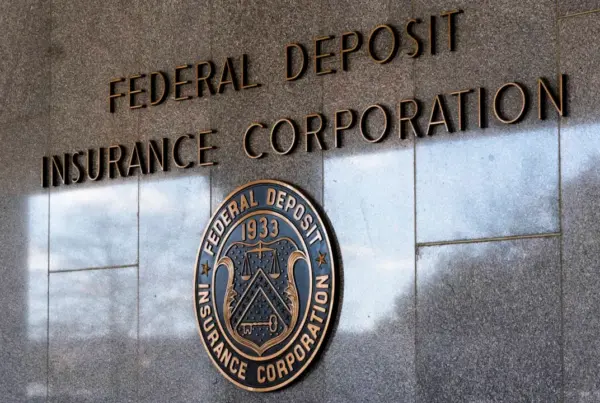On August 23, 2024, the Federal Deposit Insurance Corporation (FDIC) proposed a critical update to its regulations governing brokered deposits. This proposed rule aims to redefine the regulatory framework surrounding deposit brokers, reflecting the FDIC’s ongoing commitment to enhancing the stability of the banking system in an increasingly complex financial environment.
Historically, the regulation of brokered deposits has evolved through various amendments, including the 2019 revisions that clarified the definition of a deposit broker under the Federal Deposit Insurance Act (FDIA). The primary concern addressed by this proposed rule is the systemic risk posed by rapid deposit inflows from non-traditional financial entities, which could threaten the stability of banking institutions.
Key Regulatory Changes & Analysis
1. Expansion of the Definition of Deposit Broker
The proposed rule significantly broadens the definition of a deposit broker, impacting a wider array of entities.
- Previous Definition: Under the existing regulations, a deposit broker was defined as an entity that places deposits with banks for a fee.
- New Definition: The proposed rule expands this definition to include any entity that solicits deposits from the public, irrespective of whether they receive a fee. This change aims to capture a broader spectrum of financial intermediaries.
2. Enhanced Reporting Requirements
The proposed rule introduces new reporting obligations for deposit brokers, enhancing regulatory oversight.
- Key Changes:
- Deposit brokers will be required to submit detailed reports on deposit placements, including amounts and types of deposits.
- This requirement is intended to improve regulators’ ability to monitor deposit flows and assess associated risks.
3. Impact on Financial Institutions
The proposed changes will have significant implications for banks, credit unions, and fintech companies involved in deposit gathering.
- Affected Parties:
- Traditional banks may face increased compliance costs as they adapt to the new reporting requirements.
- Fintech companies acting as deposit brokers will need to reevaluate their business models to ensure compliance with the expanded definition.
Legal and Industry Implications
The proposed rule introduces several legal and operational challenges for affected entities, necessitating a comprehensive analysis of potential compliance burdens.
- Compliance Burdens: Financial institutions may incur substantial costs related to system upgrades and staff training to meet the new reporting requirements.
- Regulatory Risks: Non-compliance could lead to enforcement actions by the FDIC, including fines and restrictions on deposit activities.
- Recent Trends: The regulatory environment has seen increased scrutiny of deposit gathering practices, with recent enforcement actions targeting institutions that fail to adhere to existing regulations.
Recommendations for Legal Counsel
Law firms representing financial institutions should proactively engage with clients to assess their exposure under the new rule. This includes conducting compliance audits and revising operational protocols to align with the proposed changes.
Recommended Actions & Compliance Strategies
To effectively navigate the regulatory landscape, financial institutions should consider the following actions:
- Review and Update Compliance Programs: Ensure that internal policies reflect the new definitions and reporting requirements.
- Training and Education: Implement training sessions for staff on the implications of the proposed rule.
- Engagement with Regulators: Participate in the public comment period to voice concerns or support for the proposed changes, thereby enhancing the institution’s visibility in the regulatory process.
- Deadline Awareness: Monitor the timeline for final rule implementation and prepare for necessary regulatory filings.
Conclusion & Next Steps
The FDIC’s proposed rule on brokered deposits represents a significant shift in the regulatory landscape for financial institutions. With a focus on enhancing regulatory oversight and mitigating systemic risks, the proposed changes require immediate attention from affected parties.
The timeline for implementation remains uncertain, as the agency will consider public comments before finalizing the rule. Financial institutions should remain vigilant for further regulatory developments that may arise from this proposal, including potential legal challenges or legislative actions that could impact enforcement.
In summary, institutions must prepare for a more stringent regulatory environment and adapt their operations accordingly to ensure compliance with the FDIC’s evolving standards.


